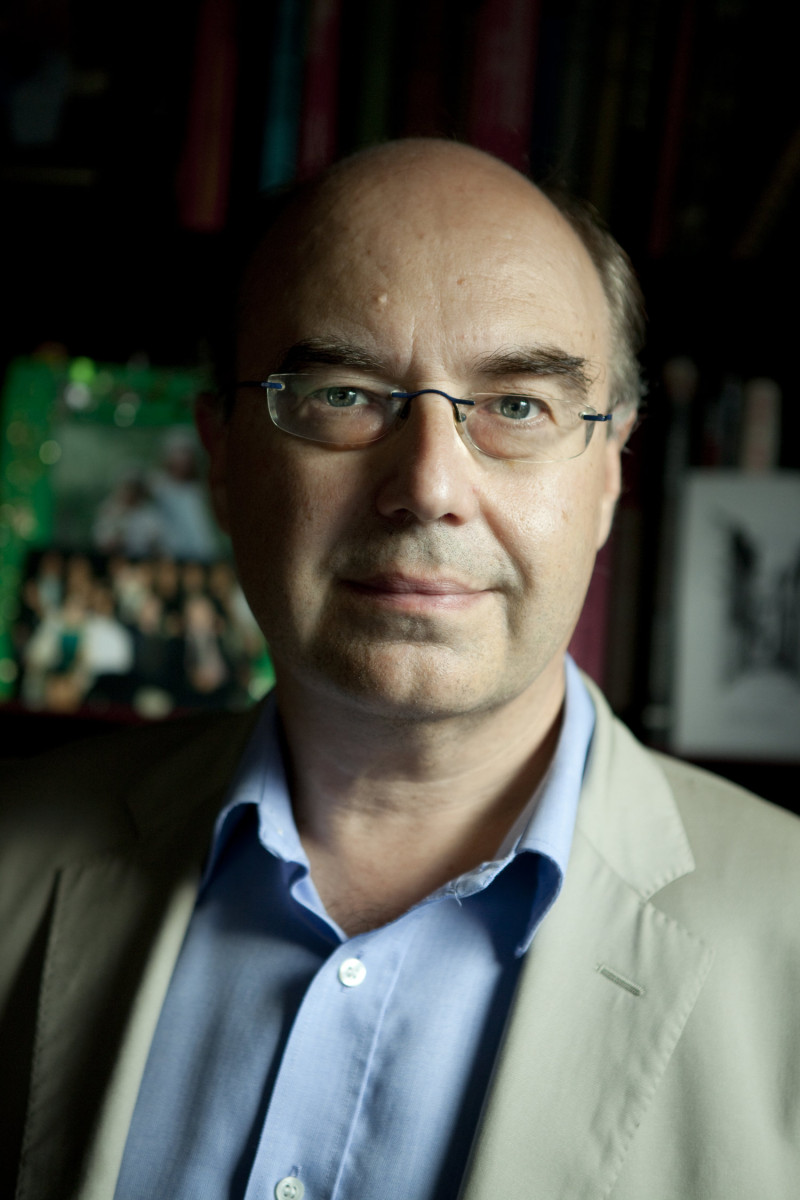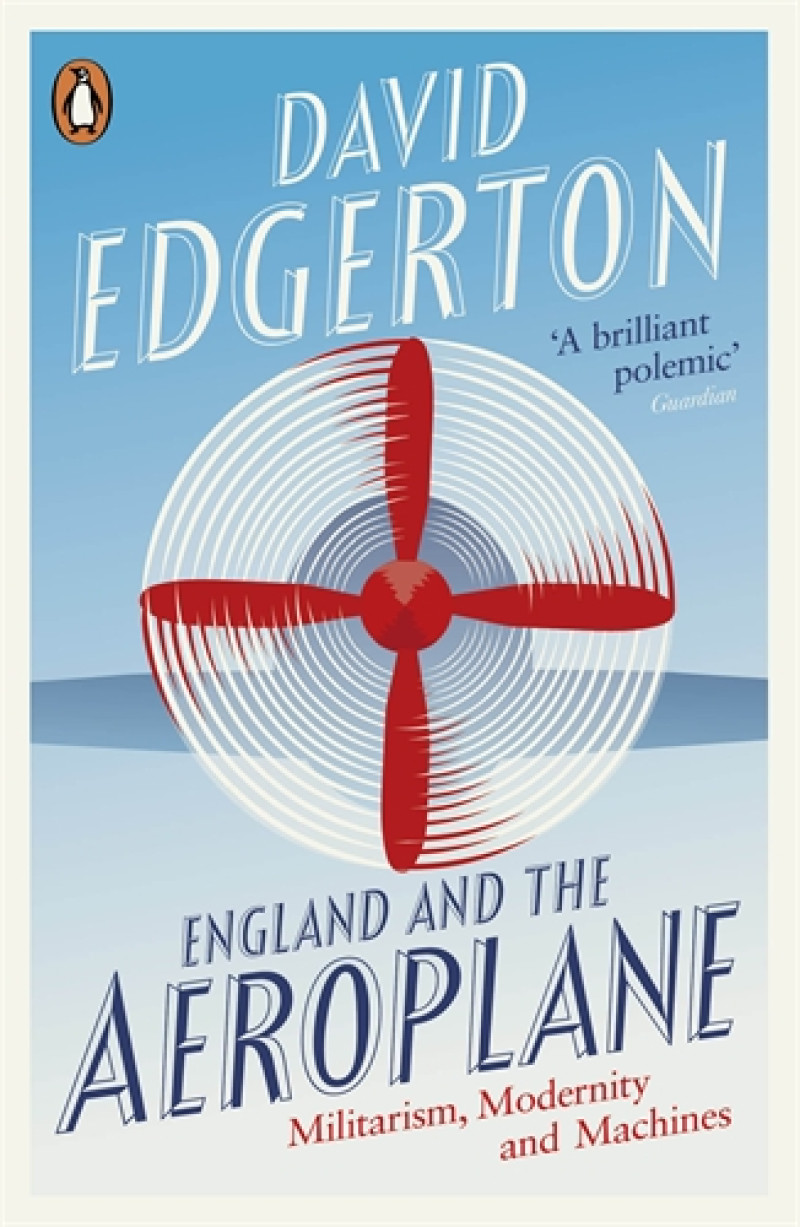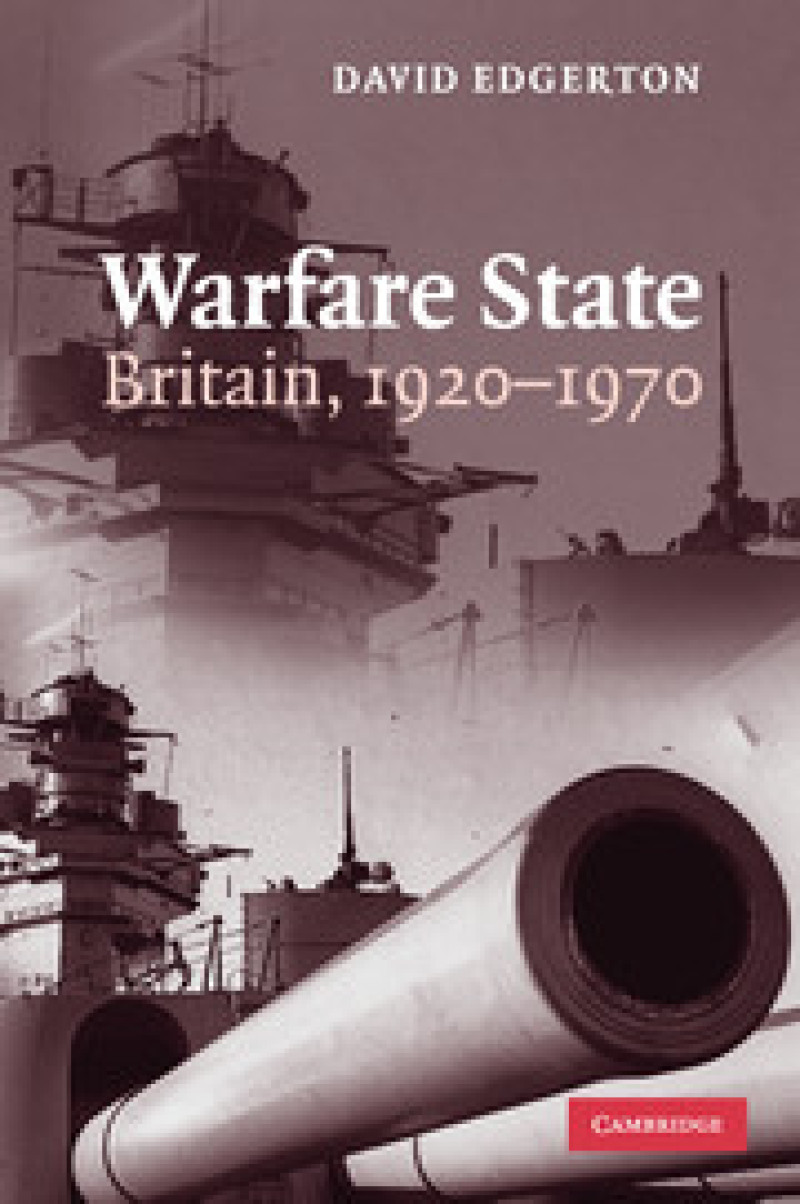David Edgerton
On the birth of operational research, the politics of science in Britain, and the importance of operations rooms during World War II.
_Interview
David Edgerton has made significant contributions to our understanding of the British state, the connections between technology and industry, and misconceptions about technology. Notably, this includes his book, "The Shock of the Old." Our conversation on July 30, 2021, explores the birth of operational research, British science politics, and the use of operations rooms during World War II. We aim to understand the context that allowed figures like Stafford Beer to become significant players at the intersection of business, government, and academia.
***
Evgeny: Hi David, what can you tell us about the Athenaeum Club and its significance to the politics of science in 20th-century Britain?
David: The Athenaeum Club, located in the heart of London near the government, parliament, and law courts, has been an essential meeting place for the elite after hours. It is recognized for its association with intellectuals, scientists, administrators, and bishops, and many renowned scientists and scientific administrators have been members of this club. It played a vital role in forming a peculiar British phenomenon known as "operational research" before the Second World War. Sir Henry Tizard, a member of the Athenaeum, was a crucial figure in operational research.
Evgeny: What was the significance of operational research in the Second World War?
David: Operational research is a form of analysis that concentrates on the analysis of weapons and operations rather than the development of new weapons. It was a specific aspect of the British scientific war effort that began alongside the development of radar, which was essential for the British state to utilize effectively to control guns during the Second World War. Simple mathematical techniques were used to analyze data, and this proved to be an effective method.
Operational research was used to study naval convoys, the maintenance of the Air Force, and bombing operations. It became a generalized approach to the analysis of operations, and it involved serving officers. The technique offered a critical view of over-adventurous innovation, and the argument was that improving the use of existing weapons was more beneficial than introducing new ones, which is the opposite of scientific boosterism. This kind of scientific realism proved to be an important factor in the success of operational research.
Evgeny: How did the Athenaeum Club influence the development of operational research during the Second World War?
David: The Athenaeum Club was where many of the colleagues of Sir Henry Tizard, who worked on the operational research project, met. Tizard employed behind-the-scenes politics to make operational research a central part of the war effort. Additionally, left-leaning academic scientists saw the potential of using their scientific knowledge in a non-serious field and were attracted to the idea of operational research. The potential of operational research was quickly realized, and it was expanded to all branches of the armed services.
Evgeny: What was the appeal of operational research to the left-learning and progressive thinkers?
David: Operational research was unique because scientists, rather than military officers or specialist business figures, conducted the investigations. It was a sideline activity that offered a critical view of over-adventurous innovation. Left-leaning academic scientists saw the potential of using their scientific knowledge in a non-serious field and were attracted to the idea of operational research. In the past, businesses and the military regularly assessed their operations to learn and improve them, but operational research was different. It employed simple mathematical techniques to analyze data, and it proved to be an effective method.
Evgeny: Can you explain the origin of operational research and tell us about its early practitioners?
David: The origins of operational research can be traced back to the early 20th century, where scientific civil servants were developing radio and weapons for the government. It involved using mathematical models to analyze and optimize complex systems. However, a second group of operational researchers emerged later on who were academics. Some of the most well-known members of this group were Patrick Blackett, John Desmond Bernal, and Solly Zuckerman, a cosmic rays physicist at the University of Manchester, found a niche in operational research within the Navy during the First World War. Bernal, a crystallographer from Birkbeck College, London, closely associated with the Communist party, and Zuckerman, an Oxford anatomist, found a berth in what was called "combined operations," which was involved in planning for the invasion of Europe.
Evgeny: Can you talk about John Desmond Bernal's views on operational research and its implications for the economy?
David: John Desmond Bernal was closely associated with the British Communist party and advocated for the planning of knowledge creation alongside the planning of the economy. He believed that operational research was an important planning technique that could provide an alternative form of calculation to that given by the price mechanism in the market. Operational research could make a new kind of economy possible, a socialist economy, which had profound socioeconomic and political consequences. For these reasons, scientists of the left paid particular attention to operational research and saw it as one of the great contributions of science during the Second World War.
After the war, figures like Bernal and Sir Henry Tizard downplayed the more important role of science in the war, which was creating new weapons. The notion of operational research was something that Bernal focused on and viewed as the key to planning. However, it is striking to see how British scientific intellectuals of the late 1940s barely mentioned the reality of the war economy as a means of generating new weapons of mass destruction. Instead, they described it as a set of practices that exemplified the scientific method, reflecting a naive and limited view.
David Edgerton examines British identity formation in 1940 during his lecture.
Evgeny: How did Bernal's views on operational research relate to the development of the notion of the “scientific techno-revolution” or STR?
David: Although Bernal did not use the phrase "scientific techno-revolution," he did have a strong sense of what he called the scientific and second Industrial Revolutions combined to form the STR idea. Operational research, which had been successful during the Second World War, found application after the war, particularly in the nationalized industries. For example, Sir Charles Goodeve went to the British Iron Steel Federation, a body looking after the steel industry immediately after the war. The nationalized mining industry also had operational researchers.
Evgeny: How did operational research contribute to the development of academic management science in the United Kingdom?
David: After the war, there was a great boom in management consultancy, and in the case of Operations Research, it became more mathematicized after the war. As a result, it played a significant role in developing academic management science in the United Kingdom, contributing to the expansion and diversification of management consulting businesses. Operational research was important, but it was never the only kind of analysis of business or other sorts of operations.
Evgeny: How did computers impact people's thinking about the possibility of economic planning in Britain?
David: While there was some talk in the Communist party about the benefit of computers for economic planning, but this idea did not seem to impact their thinking significantly. Their views also mirrored the Soviet doctrine with its notion of the "scientific technical revolution" that engulfed a significant change associated with atomic power and automation since the 1930s, with computers being a part of that change but only becoming significant for planning in the future.
Evgeny: How did operational research fit into the new managerialism in post-war Britain?
David: After the war, there were no operational researchers in the central government, and for a while, at least in private industry, but it found its application, particularly in the nationalized industries. The success of operational research during the Second World War led to its adoption in the post-war period, especially in areas where the optimization of complex systems was required. For example, the steel and mining industries had operational researchers who helped improve efficiency and reduce costs. The new managerialism of the post-war period emphasized the use of rational decision-making and scientific approaches in management, and operational research was seen as an essential tool for achieving these objectives.
During the late 1950s and early 1960s, Britain had a great debate about the country's economic decline. Many scientists associated with the Labour Party, including Patrick Blackett and C.P. Snow, were involved in discussions about a new approach to science and technology in government. The cult of the manager and professional was part of a larger effort to increase the industry's productivity. Stafford Beer was not the first to be part of this movement. Blackett, known as the father of operational research, was one of the key figures in this movement.
Evgeny: Can you tell us about how the Ministry of Technology was established?
David: When Labour was elected in 1964, they quickly created a new ministry called the Ministry of Technology, which focused on applied technological innovation in general. The idea was to redirect scientific efforts from supersonic airplanes and atomic energy to more practical machines, including computers, machine tools, and automation. The ministry was taking over the British state's great technological and scientific organizations in stages, creating a higher than typical economic growth rate.
This was not just about bringing technocratic enthusiasm to the British government for the first time, but rather restructuring the industry and creating more efficiently organized large firms. Management consultants, including McKinsey, were brought in to modernize the structures of businesses and operations of the state. The founding of the Ministry was part of the larger effort to increase productivity and innovation in the British economy.
Evgeny: Where do you think Stafford Beer drew inspiration for the control room of the Cybersyn?
David: The idea of having a special place where information from factories or firms could be visible to planners and operators goes back to at least the 1930s in the UK. An excellent illustration is the operations rooms that oversaw the Battle of Britain for Fighter Command, the Operations Room for the Western Approaches, and the naval Operations Room for the North Atlantic. These rooms were modeled after the control rooms of power stations, which were considered a symbol of modernity, along with the power stations themselves.
Evgeny: You also mentioned the British Army's support for operational research and computing after the war. Can you elaborate on this?
David: Following the war, the British Army and armed forces significantly promoted operational research and advanced computing in Britain. Analog computers were particularly crucial in the development of airplanes, missiles, and atomic bombs. It is worth noting that Stafford Beer was also affiliated with the army from 1944 to 49. The military's increasing involvement in research and development across various fields, including military technology, contributed to progress in other technological areas. The rise of the warfare state during this period led to increased funding and support for research, resulting in a culture of innovation and technological advancement that persisted beyond the war's end.
David Edgerton on the global history of technology.
Evgeny: Can you explain the difference in approaches between the British and US academic elite in operational research?
David: In the field of operational research, there has historically been a greater variety of approaches and a diversity of political opinion amongst practitioners in the British case compared to the US. For example, while Herman Kahnin the US was talking about "thermonuclear war," in the UK, military historians and operational researchers like Patrick Blackett insisted that questions of nuclear strategy were not reducible to mathematical formulas or game theory.
However, I don't want to suggest that all British OR corresponds to this image - most of it was narrow, technical, and focused on specific issues. There was also significant traffic from the US to the UK in this field. Nonetheless, there is a difference at the highest elite levels in terms of appreciating a certain worldliness, as opposed to mere technical expertise when discussing matters of state.
Evgeny: Would you say non-typical figures had an easier type fitting into the scientific communities in Britain?
David: Yes, for example, Peter Mitchell won a Nobel Prize in chemistry for work he did in his country house, outside the usual scientific or military bureaucracy. Another figure is James Lovelock, a highly innovative environmentalist not part of the traditional scientific or technological establishment. The British system is conducive to a certain kind of eccentricity and marginality, and there is a culture of valuing unconventional and non-typical approaches to innovation. This culture encourages experimentation and allows innovative ideas to emerge from unexpected places. Additionally, the British system is flexible in allowing diverse voices and perspectives to be heard, which can lead to more innovative and creative solutions.
A private members' club in London for individuals with intellectual interests, particularly those distinguished in science, engineering, literature, or the arts.More
A British scientist, who contributed significantly to radar development, crucial for the Allied victory in WWII.More
A problem-solving and decision-making discipline using advanced analytical methods to help manage an effective organization. Originated in Britain during WWII for integrating technologies (such as the radar) into warfare tactics.More
Patrick Blackett: British physicist awarded the Nobel Prize in Physics in 1948 for his development of cloud chamber methods and discoveries on cosmic rays and artificial radioactivity.More
J.D. Bernal: A British scientist and political activist, known for significant contributions to X-ray crystallography and molecular biology, as well as his work on the social function of science.More
Solly Zuckerman: British public servant, scientist, and expert on primate behavior. His influential work on the social life of monkeys and apes advanced the understanding of human social behavior.More
Founded in 1920, advocating for workers' rights and the overthrow of capitalism, experiencing growth, repression, and decline before dissolving in 1991.More
A Canadian chemist who led Britain's scientific war efforts during WWII, improving convoy navigation, radar, and explosives. His methodologies, later applied to industrial problems, pioneered technology transfer.More
A 1970s initiative to manage Chile's economy using real-time data, networked computing, and principles of cybernetics. It was dismantled after Pinochet's 1973 coup.More
An American policy maven and futurist, known for his work on nuclear strategy, including the 'Doomsday Machine' concept.More
An independent British scientist celebrated for proposing the Gaia Theory, which posits that Earth functions as a self-regulating system.More
_bibliography
Edgerton, David. “War, Reconstruction, and the Nationalization of Britain, 1939-1951.” Past & Present, vol. 210, Oxford UP, Jan. 2011, pp. 29–46.
Edgerton, David. “The Nationalisation of British History: Historians, Nationalism and the Myths of 1940.” The English Historical Review, vol. 136, no. 581, Oxford UP, Aug. 2021, pp. 950–85.
_Links




